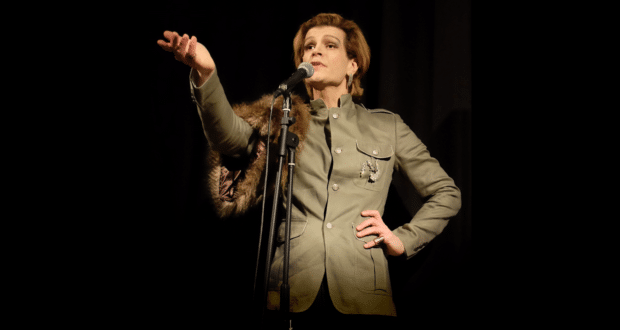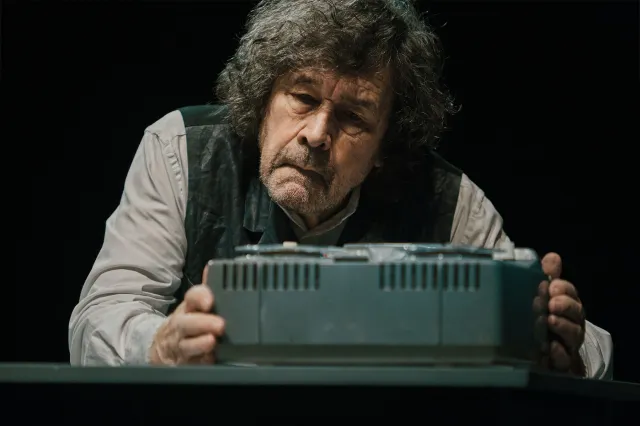Crazy Coqs
Below 21st-century London, 1930’s Weimar Berlin is resurrected this Halloween by a handsome 90-something-year-old vampire, with a flair for theatre and a formidable voice.
Spooky season at over, say, age 35 can be tricky. If you are childless and not a costume lover, what can you do to honour Samhain that isn’t just flopping on the sofa trying to find the technical merits of House of the Living Dead? (Believe me, there aren’t any.) Dear friend, I have you covered, although maybe for next year, so get planning! Hersh Dagmarr, synth-pop producer, and cabaret sensation stirs in his coffin.
Tunnel down to the refined Crazy Coqs, the circular art deco lounge bar, deep underneath Piccadilly Circus, grab some very reasonable French food from Zedel’s, or just a martini if you really want to be in character, and settle in for an evening without a witch hat or ‘candy bar’ in sight.
After all, what is truly terrifying? How about the period in between the world wars in Germany and specifically Berlin: the Weimar Republic, a time of great freedom and harsh oppression. Cabaret, Christopher Isherwood, Bertolt Brecht and the fragility of the first steps towards gay liberation from people like Magnus Hirschfeld (one of the first sexologists). In addition to the subsequent shattering of all this wonder with the Nazi’s rise to power.
But who better to tell us about this than Dagmarr, an ancient vampire reminiscing and proving that cabaret is not just a career for the living. With an impressive, pomaded quiff and pallid complexion he glides onto the small stage, sporting a worryingly fascist-looking uniform, saved with brooch and fur shoulder applications. Karen Newby is our dexterous pianist, mumbling German throughout, and regularly the butt of Dagmarr’s smutty comedy.
We raise our glasses, and are treated to China-shaking vocals, historical tidbits and bawdy humour. A refined selection of songs gives us more range than just the big numbers from the musical Cabaret that you could see for a tongue-numbing amount down by the river. No, this is not some ’immersive’ contradictorily extortionate view of the period. This is simply a man, sometimes pretending to be a woman, belting odd songs about milkmaids and gigolos to a room of well-dressed subterranean drunks (counting myself here). I’ll let you work out which one is more authentic.
Dagmarr really vibrates when in either his native French, (some rousing Edith Piaf) or when blasting German. Brecht’s musical collaborator, Kurt Weill’s ‘Sailors Tango/Wunderbar‘, is a highlight and one of the better-known within the repertoire. We also get some Marlene Dietrich in the form of ‘Just a Gigolo’, featured in the disastrous 1978 film starring the movie star and David Bowie (which is a must if you want a good old chuckle at a campy mess). There is a sidesplitting cover of Britney Spear’s ‘Oops I Did It Again’, with added “meine liebe”. Elsewhere the songs are eclectic and with that odd 1920/30s humour that can seem both childlike and oddly cruel.
In the second act Dagmarr struts on stage in a gleaming white tux, sequins trickling down his lapels, as Newby chants away with German song. My wish for more references to the important history of homosexuality in Weimar is musically answered with Mischa Spoliansky’s (father of German Cabaret) ‘Maskulinum-Femininum’ and the first gay anthem ‘Das Lila Lied‘ (Lavender Song), causing this old queer to dilute his martini with many salty tears. Finishing with a flourish with the long-expected ‘Life is a Cabaret’, Dagmarr illustrates the period’s contradiction but prescient optimism: come hear the music play indeed!
Appropriately one night only, but keep an eye on Dagmarr’s website for future delightful horrors, click here!



